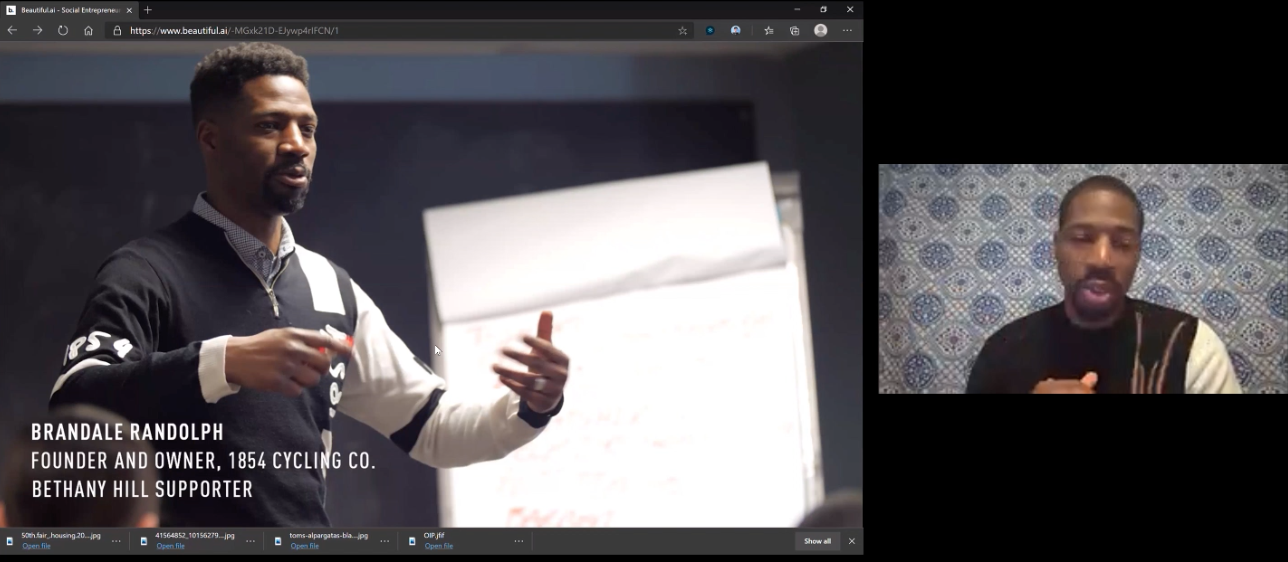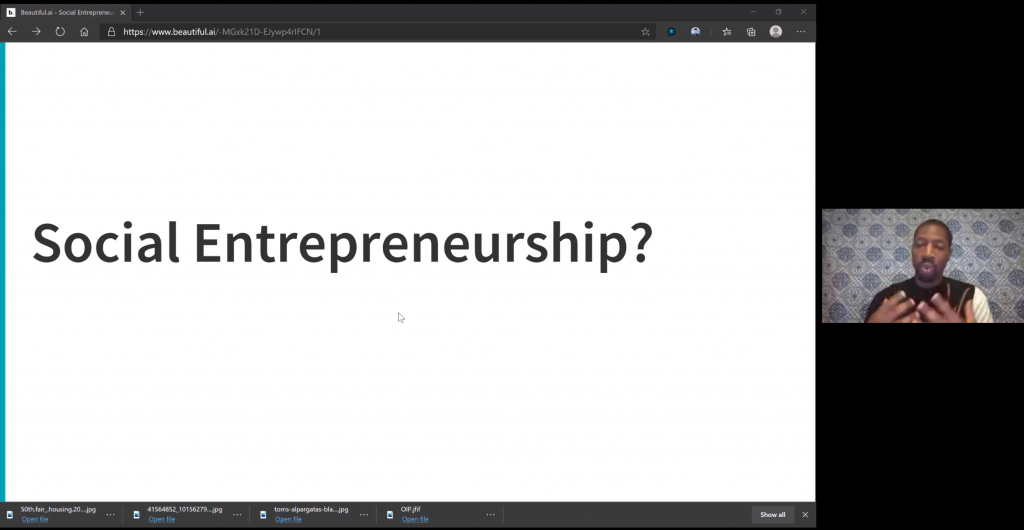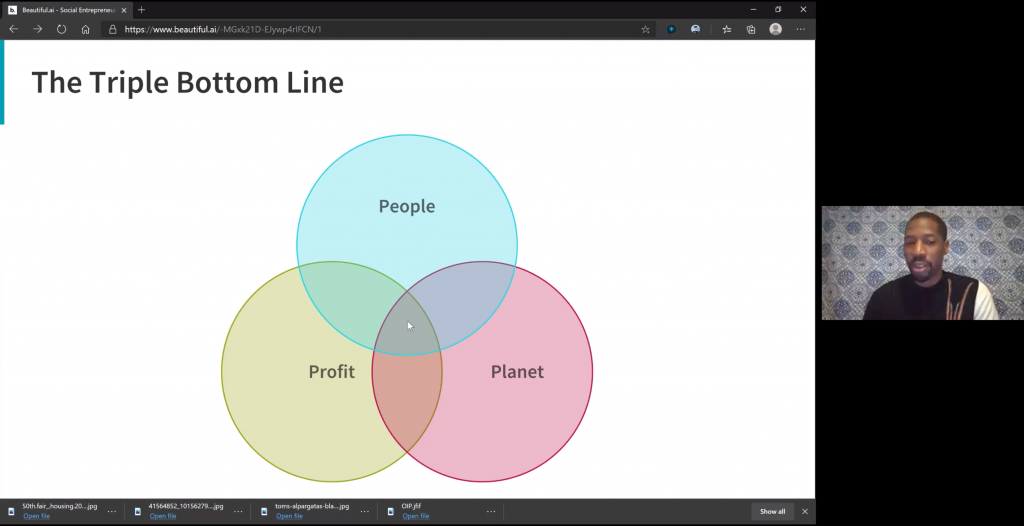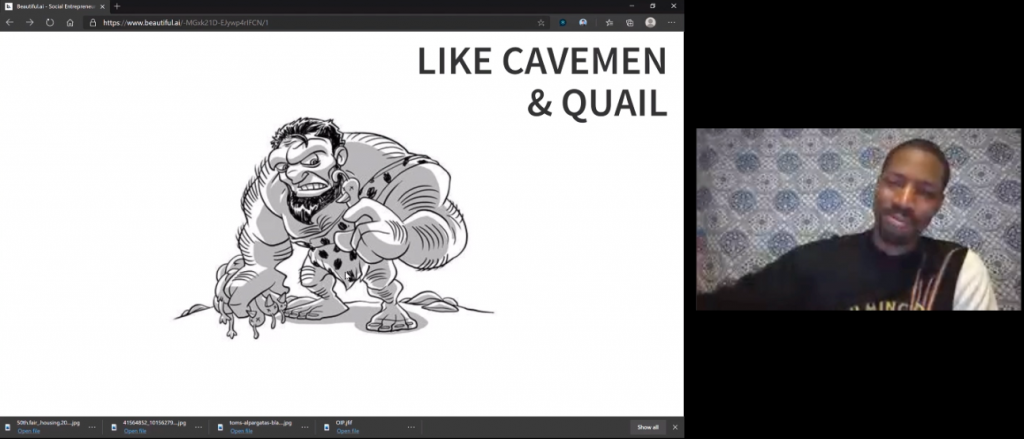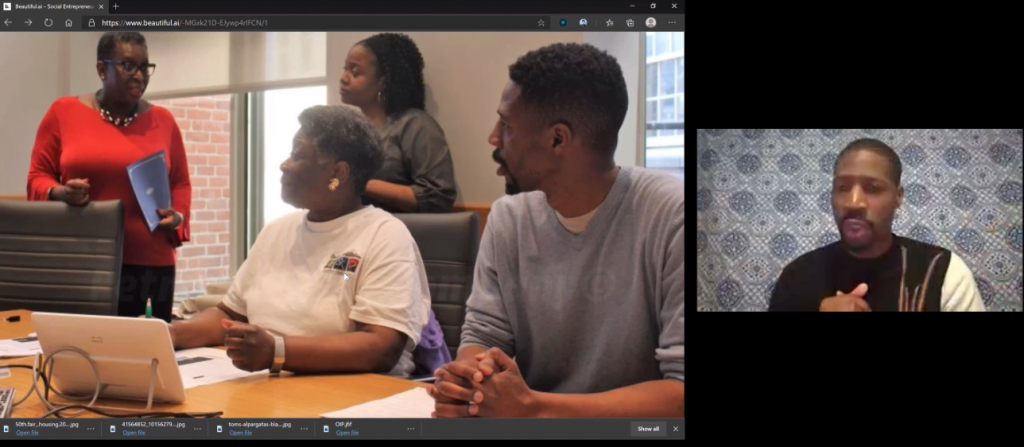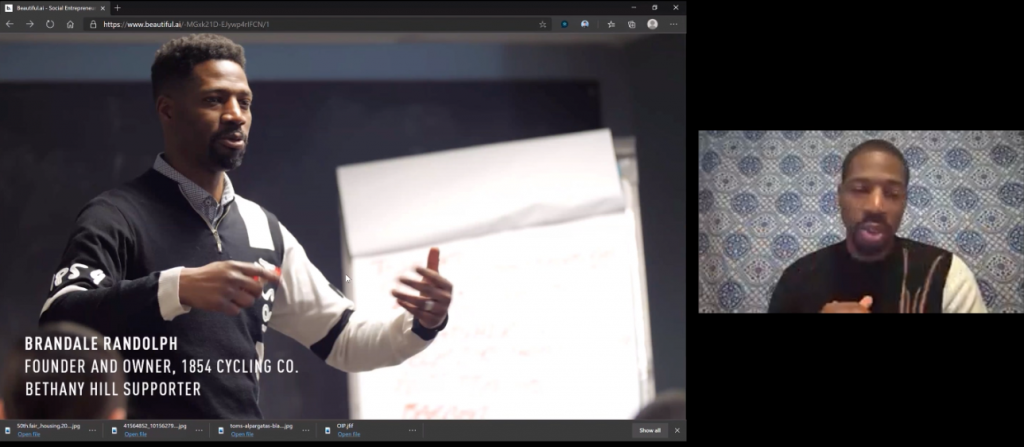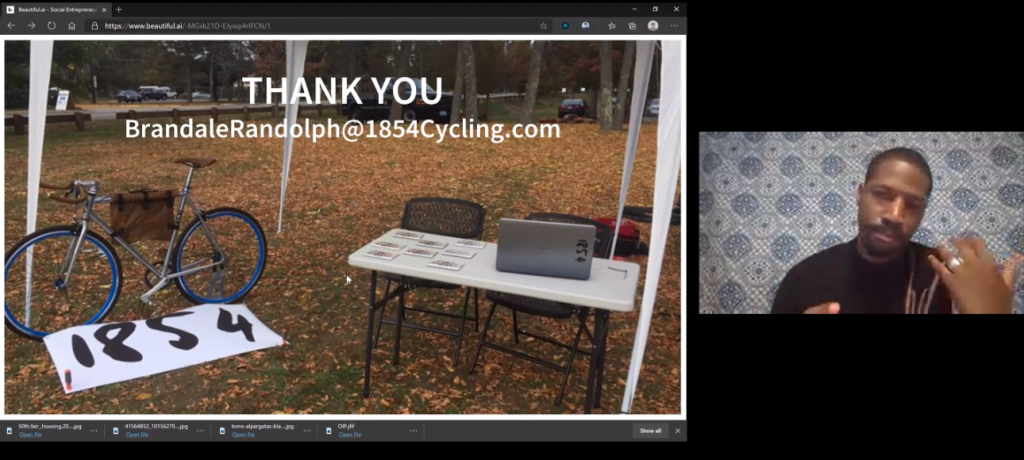By Sydni Williams
***

FRAMINGHAM – As part of the Framingham Library’s Brown Bag Learning Series, Framingham resident & business owner Brandale Randolph gave a virtual presentation on the Rise of Social Entrepreneurship earlier this month. The program was available free to members of the community and recorded so others could view it later.
Randolph is an author, activis,t and founder of the 1854 Cycling Company. He describes himself as a social entrepreneur; a title which he defines as an entrepreneur “who believes that you can both have profit and serve the greater good.”
Randolph explained that “when people seem to think of businesses… there’s this thought that all business needs to be about the bottom line, which is to make money,” and “there’s no ethics or morals.”
[broadstreet zone=”59945″]
However, being able to serve the community, specifically the people and the planet, while also managing a profit is “what social entrepreneurship ultimately is,” he said.
“This balance between people, planet, and profit” is what he calls the “triple bottom line.”
With the “triple bottom line,” the business still produces a profit because “how can you do good for a society when you’re borrowing from that society at the same time,” Randolph said.
While the business is profiting, Randolph explained that you must think about “what you are doing for the planet” and set up the business to be “environmentally conscious.”
[broadstreet zone=”59947″]
Some businesses “greenwash,” which is “a term that we use for companies that are not really invested in serving the planet, but more so appearing like they serve the planet.”
Similarly, some companies say they want to do things to help people, “but you look deeper into the organizations and the women and men are not paid equally” Randolph added.
“The key for a social entrepreneur is the search for the centerpiece, the Framingham resident said.
Randolph said: “Where i can balance having positive efforts and profits and having employees being treated well and having society as a whole being benefited by our existence, but also not harming the planet as we go along.”
“A great example of this are TOMS Shoes, a social entrepreneurship enterprise that has been successful” Randolph shared. Not only are the shoes “made in a very environmentally responsible way,” “the people who work at TOMS shoes can also be paid living wages.” Toms Shoe’s ‘buy one get one’ model also gives shoes to those who cannot afford or access them.
[broadstreet zone=”59948″]
Randolph also discussed the topics of his 2012 TED talk at Texas Tech University called “Stop Throwing Breakfast Sandwiches At The Poor.”
His inspiration for this title came from an interaction he witnessed in Texas: There was a young man outside a restaurant who in need of some money and another man walking out of the restaurant threw a breakfast sandwich at the young man. Randolph then talked to the young man and discovered that he was actually a college student who did not need a sandwich, but needed a little money to catch a bus back to the college campus.
Randolph said: “It got me thinking about how much money we throw away because we don’t ask people who are struggling what it is they actually need.”
After this experience, he “developed an algorithm that takes 30 different sets of data and can pinpoint the people who are struggling with poverty in every geographic region.”
“In Texas, in particular, I found three categories of people who were struggling.”
These three groups of people are the “chronically unemployed,” “the formerly incarcerated who could not afford to pay back restitution” and “young adults… emancipated from the state system,” said Randolph.
[broadstreet zone=”59948″]
“So I formed a company, a non profit, that addressed those particular needs,” Randolph said.
For the children who had been emancipated, “we taught life skills”, for the chronically unemployed “we helped them go through ‘keep a job’ training,” and for the formerly incarcerated “we talked to them about how they can stabilize their incomes through entrepreneurship.”
Randolph, as mentioned earlier, is also an author with a book called Like Cavemen and Quail, which he says “details the algorithm and how it all works.”
When Randolph moved to Framingham, he “joined a Fair Housing Committee” and eventually served as the chair, where he learned that “affordable housing is not really affordable.”
Randolph believes “that no one who works 40 hours a week should have to live in poverty.”
[broadstreet zone=”58610″]
Therefore, he works “to do things that empower the people” and Randolph discussed his plans to “employ the formerly incarcerated.” He shared data on formerly incarcerated people and specifically, formerly incarcerated women with children.
In Framingham, “a majority of all the female-led households who are earning below the poverty threshold, have children who are under the age of 18” and their median income is only “11,500 per year,” said Randolph.
To add to this situation, some of “these women also have criminal backgrounds that may or may not be violent,” he added.
“If you look at the data, men who were formerly incarcerated can often find work and work themselves above the poverty threshold, but women are held back.” Randolph explained,

“My goal with the 1854 cycling company was to simply to create a place where they can earn a living wage,” said Randolph.
Concluding his presentation, Randolph said “I really believe that this growth of the past 4 years is part of this ecosystem of social entrepreneurs… This is what’s coming. We’re going to have a society where people are going to see the 40+ million people out of work and all the businesses that have shut their doors for good… There’s going to be a rise of people who want to shape society beyond just profits… and also improve our world for the better and I want to be a part of it.”
After his presentation, Randolph spent close to 45 minutes openly speaking with viewers and answering questions because he said: “I believe that if we were there in person it would be very beneficial for us to have this dialogue that I think is much needed.”
***
Williams is a SOURCE intern for Fall 2020. She is a student at St. Mark’s School in Southborough. Williams also interned with SOURCE in the summer of 2020.

***
Screenshots of the Brown Bag Lecture by Syndi Williams

